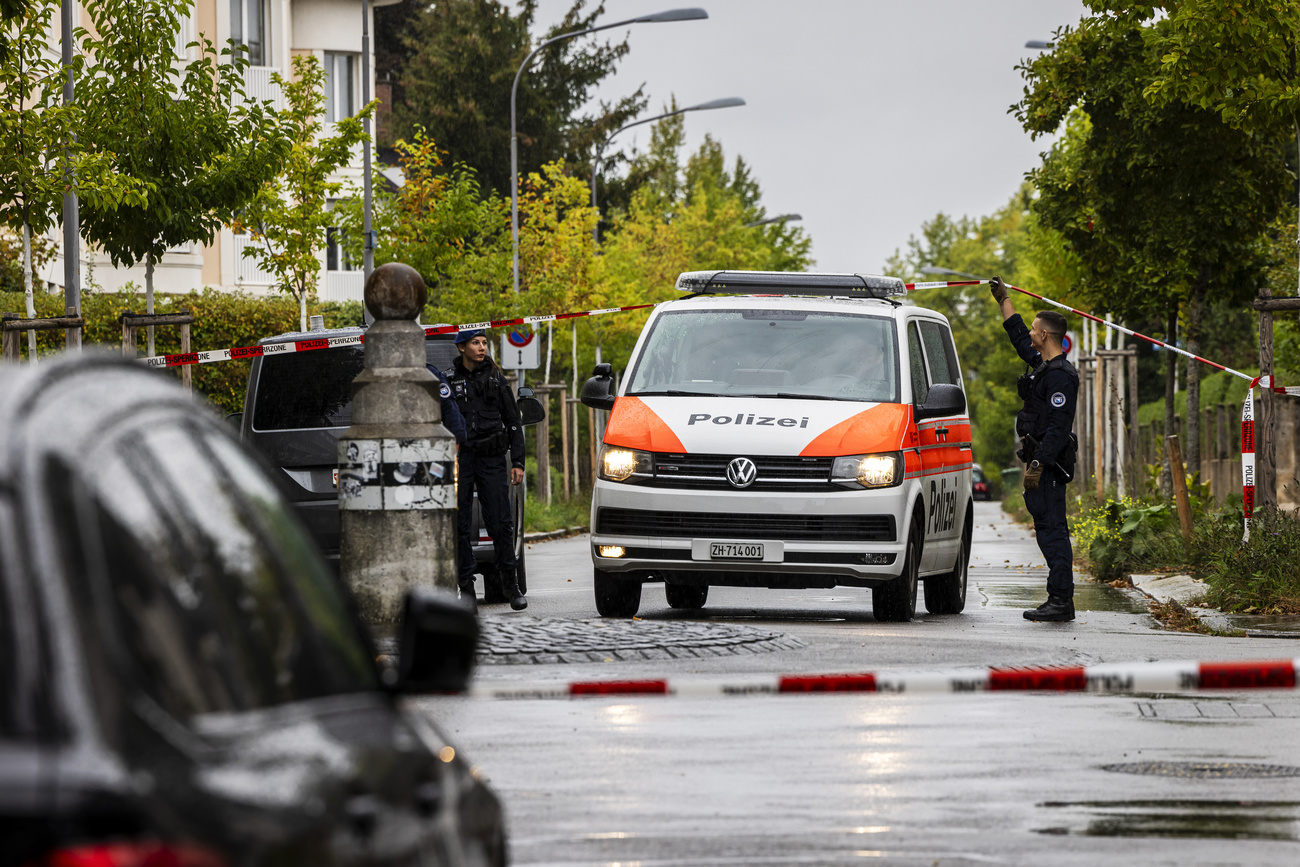Campaigners hail ban on electroshock weapons

Human rights groups have welcomed a government decision to ban the use of electroshock weapons during forced deportations.
But campaigners are unhappy that a bill on approved methods for restraining deportees includes the use of police dogs and shackles.
On Wednesday the government adopted a series of proposals setting out what officers can do to restrain deportees or prisoners in transit who refuse to cooperate. The measures will now be submitted to parliament for approval.
Gone from the original list presented by the justice ministry in 2004 are Taser electroshock guns. Their inclusion was hotly contested by human rights activists.
“Opposition to the use of Tasers was very, very strong, not just from human rights organisations but also from the police themselves,” Denise Graf, refugee coordinator for the Swiss section of Amnesty International, told swissinfo.
Gagging devices, masks and restraint techniques that prevent deportees from breathing properly are also prohibited, as is the use of tranquillisers.
Shackles
But officers will be able to shackle deportees and use batons and police dogs to control difficult prisoners.
The government stressed that excessive force should not be used and every effort should be made to avoid injuring people.
While welcoming the ban on Tasers, Amnesty said on Thursday that the decision to allow dogs to be used was “unacceptable”.
“What we have seen in practice during these kinds of deportations is you have three or four police officers on one side and the deportee on the other, so there is already a big inequality in matters of force and it is not necessary to use dogs,” said Graf.
“As for shackles, they are simply degrading. We really feel there should be more dialogue with deportees and less restraint.”
Tasers abandoned
The Swiss Refugee Council, which also fought to have Tasers removed from the list, said it would continue to press for better supervision of deportees.
“The positive aspects of this bill are the bans on Tasers, medication and gagging devices and the introduction of special training for officers handling deportations,” said Yann Golay.
“But we would also like to see all deportees examined by a doctor before being expelled and for the whole process to be monitored by an independent observer.”
Folco Galli, spokesman for the Federal Justice Office, confirmed that the government had removed Tasers from the bill in response to opposition during the consultation process.
“You cannot ignore the results of the consultation process, otherwise you risk the possibility that parliament will change the whole project,” he told swissinfo.
swissinfo, Adam Beaumont
The justice ministry moved to standardise the handling of forced expulsions following what it described as “isolated incidents” in the past.
At least two foreigners – a Palestinian and a Nigerian – have died in police custody during deportation since 1999.
The new rules would apply to federal officers and cantonal police officers working under a federal mandate. Under Switzerland’s federal system, cantonal police forces retain the right to use Tasers.

In compliance with the JTI standards
More: SWI swissinfo.ch certified by the Journalism Trust Initiative









You can find an overview of ongoing debates with our journalists here . Please join us!
If you want to start a conversation about a topic raised in this article or want to report factual errors, email us at english@swissinfo.ch.